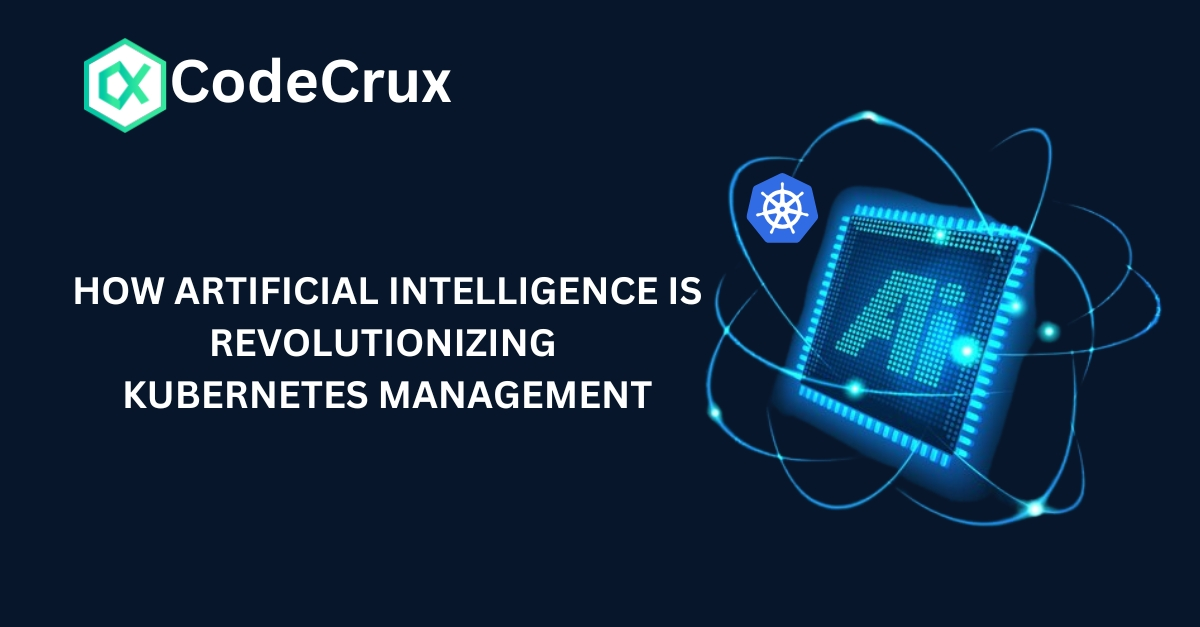How Artificial Intelligence is Revolutionizing Kubernetes Management

Kubernetes has become the de facto standard for container orchestration, offering a powerful platform for deploying, managing, and scaling containerized applications. However, as Kubernetes environments grow in complexity, managing them efficiently presents significant challenges. Enter Artificial Intelligence (AI)—a transformative force that is revolutionizing Kubernetes management by optimizing resource utilization, enhancing security, and automating operations.
The Challenges of Kubernetes Management
While Kubernetes simplifies container orchestration, its management demands expertise in scheduling, scaling, monitoring, and security. Some of the most pressing challenges include:
-
Resource Optimization: Ensuring efficient use of CPU, memory, and network resources without over-provisioning or under-utilizing clusters.
-
Autoscaling Complexity: Manually configuring horizontal and vertical autoscaling can be inefficient and reactive rather than predictive.
-
Anomaly Detection & Troubleshooting: Identifying and resolving performance bottlenecks, security threats, and failures in real time.
-
Policy Enforcement: Ensuring compliance with organizational and security policies across distributed environments.
AI-powered solutions are addressing these pain points by introducing automation, predictive analytics, and intelligent decision-making into Kubernetes operations.
AI-Driven Advancements in Kubernetes Management
1. Intelligent Resource Optimization
AI enhances Kubernetes resource management by analyzing workload patterns and predicting resource needs. AI-powered tools can:
-
Dynamically adjust CPU, memory, and storage allocation.
-
Optimize container placement to reduce costs and improve performance.
-
Minimize idle resources through machine learning-based predictions.
2. Predictive Autoscaling
Traditional Kubernetes autoscaling is reactive, responding to CPU or memory usage after thresholds are exceeded. AI-driven autoscaling leverages historical data and real-time metrics to:
-
Predict workload spikes before they occur.
-
Adjust resource allocation proactively, preventing downtime and reducing cloud costs.
-
Enhance horizontal and vertical scaling decisions using machine learning models.
3. Automated Anomaly Detection and Troubleshooting
AI-powered observability platforms continuously monitor Kubernetes environments, using pattern recognition and anomaly detection to:
-
Identify performance degradation and security breaches in real time.
-
Automate root cause analysis by correlating logs, metrics, and traces.
-
Recommend and apply corrective actions before issues impact end users.
4. AI-Enhanced Security and Compliance
Security remains a top concern in Kubernetes deployments. AI enhances security by:
-
Detecting unusual network traffic patterns indicative of potential threats.
-
Automating vulnerability scanning and compliance checks.
-
Enforcing security policies using AI-driven policy engines such as Kyverno and Open Policy Agent (OPA).
5. Self-Healing Kubernetes Clusters
AI-driven Kubernetes management introduces self-healing capabilities, reducing human intervention in incident response. These mechanisms:
-
Automatically restart failing pods and nodes.
-
Adjust configurations to mitigate system failures.
-
Implement AI-powered rollback mechanisms to ensure system stability.
AI-Powered Kubernetes Tools Leading the Charge
Several AI-driven solutions are making Kubernetes management more intelligent:
-
Kubeflow: A machine learning toolkit for Kubernetes that enables AI model deployment and training at scale.
-
Kubernetes AI Operators: AI-powered controllers that automate operational tasks.
-
Datadog AI Monitoring: Provides AI-driven insights for Kubernetes observability.
-
KubeEdge: An AI-powered edge computing framework that extends Kubernetes to IoT environments.
The Future of AI in Kubernetes Management
As AI technology evolves, Kubernetes management will continue to benefit from:
-
Greater Automation: Reduced manual intervention with fully autonomous Kubernetes operations.
-
Improved Efficiency: AI-driven cost optimization through intelligent workload distribution.
-
Enhanced Security: Adaptive AI-driven threat detection and response mechanisms.
Organizations adopting AI in Kubernetes management will gain a competitive edge by improving efficiency, reliability, and security while reducing operational complexity.
Conclusion
Artificial Intelligence is revolutionizing Kubernetes management by enabling predictive scaling, optimizing resource allocation, enhancing security, and automating troubleshooting. As AI-driven tools continue to evolve, Kubernetes operations will become more intelligent, autonomous, and resilient, paving the way for a new era of cloud-native application management.
By embracing AI in Kubernetes management, organizations can unlock greater efficiency, reduce costs, and improve the overall reliability of their containerized applications. The future of Kubernetes is intelligent, automated, and AI-powered—a transformation that is already underway.